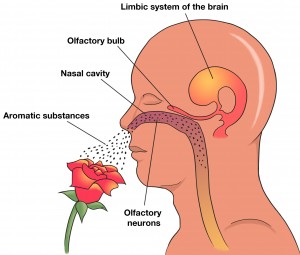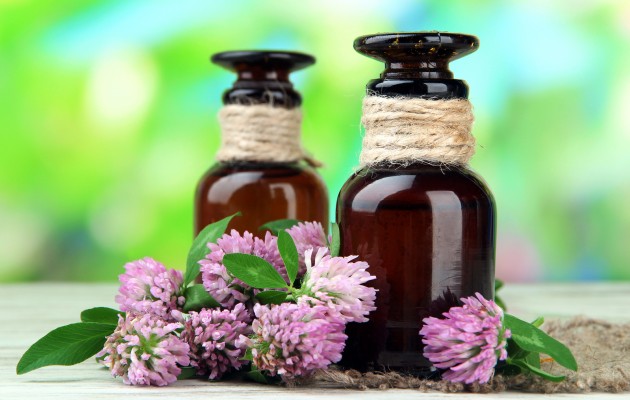The Science Behind Aromatherapy: Nose to Brain Connection
SNIFFING DOWN MEMORY LANE
Did you ever wonder why the smell of freshly cut grass or baking chocolate chip cookies or forgotten damp gym clothes for that matter sends memories of childhood flooding back to you faster than you got that parking ticket?
When odor molecules reach the upper nasal passage, a lining of nerve cells are triggered. The nerve cells send electrical impulses to the olfactory bulb in our brain. The olfactory bulb then transmits impulses to the amygdala (our memory storage unit) and other parts of our limbic system. The limbic system is our emotional control center. I call it “headquarters” for our reactions.
Emotional Connections with Smell
Scents can evoke memories and emotions before we consciously think about it. Our sense of smell is the only sense that does not have an “editing team” to make conscious decisions. Our senses of sight, touch, hearing, and taste all pass information through our thalamus in the brain, which relays messages to our cerebral cortex. This allows our thought center to participate in our response.
When we smell essential oils, the molecules are tapping on the door of our limbic system. Remember- the limbic system is a powerful mediator of emotions? When the nasal lining is greeted by pleasant scents, we can have profound physiological and psychological benefits.
The Nose to Brain Connection
 The limbic system communicates with parts of our brain that control blood pressure, heart rate, and stress levels. This can have many positive effects on our health. The limbic system can directly activate the hypothalamus, our master gland. The hypothalamus acts as our hormonal control center.
The limbic system communicates with parts of our brain that control blood pressure, heart rate, and stress levels. This can have many positive effects on our health. The limbic system can directly activate the hypothalamus, our master gland. The hypothalamus acts as our hormonal control center.
The hypothalamus is responsible for the production of growth hormones, neurotransmitters such as serotonin (the happy molecule), thyroid hormones, and sex hormones. Essential oils when inhaled can help to alleviate stress, negative feelings, and bring energy to your day.
Studies have also documented that essential oils may reduce appetite due to their influence on the hypothalamus. A section of the hypothalamus regulates satiety after a meal. This is all good news! Our brain is a magnificent masterpiece.
The power of this is mindboggling! (pun intended) Our nose is the gateway – nature handles the rest. Happy diffusing!
* The entire contents of this website are for informational purpose only. it is not intended to treat, diagnose, cure or prevent disease. The information on this has site has not been reviewed by the FDA. Always consult a qualified health care professional for medical advice and health care decisions.
If you want to use an article on your site, that’s great! Here’s what you must include:
Anne Meyer is medical doctor of physical medicine and rehabilitation specializing in optimizing health through nutrition, exercise and integrative treatments. She uses her in-depth knowledge in complementary health and traditional medicine to develop the most effective treatments for her patients health and well-being.






Let’s Connect!